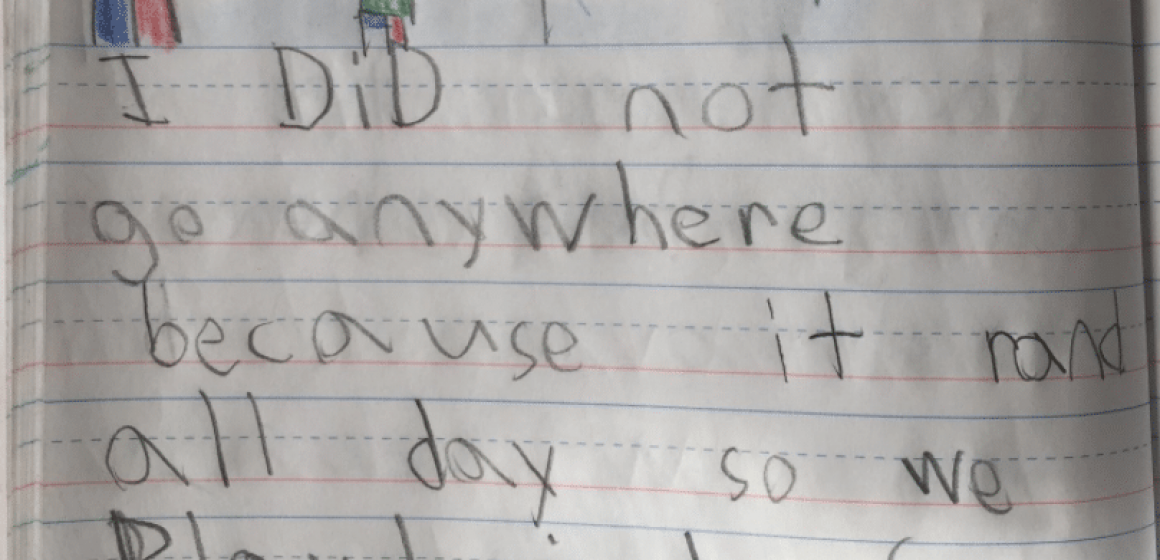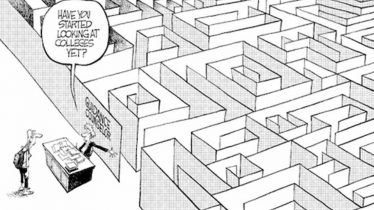Tips for the COVID Supplement: Keep a COVID Journal
As I discussed in my last three posts, The Common App has opened up the option to students applying to college for the 2021 academic year to respond to a question concerning their experience with COVID.
Next year, on the 2020-2021 application, The Common App will provide students who need it with a dedicated space to elaborate on the impact of the pandemic, both personally and academically. We want to provide colleges with the information they need, with the goal of having students answer COVID-19 questions only once while using the rest of the application as they would have before to share their interests and perspectives beyond COVID-19.
Below is the question applicants will see:
Community disruptions such as COVID-19 and natural disasters can have deep and long-lasting impacts. If you need it, this space is yours to describe those impacts. Colleges care about the effects on your health and well-being, safety, family circumstances, future plans, and education, including access to reliable technology and quiet study spaces.
- Do you wish to share anything on this topic? Y/N
- Please use this space to describe how these events have impacted you.
The question will be optional and will appear in the Additional Information section of the application.The response length will be limited to 250 words.
Parents, students and college counselors alike have been asking me for tips on how to approach this the COVID Supplement. Since everyone is in the same boat, but each of us has a unique experience — and also because the landscape of college admissions, and the landscape in general, in this time of COVID, is constantly changing — it is important for each student to track and record their own perceptions and responses.
For that reason, I have suggested to students that they keep a running COVID journal.
Your COVID journal does not need to be handwritten, nor do the entries need to be long and elaborate.
Sometimes a simple sentence or headline or feeling or dream is enough.
Since many times a day, every day, some element of our experience relates to COVID, it will not be difficult to find moments to record.
The trick is you need to be committed to recording these moments, and you need to take the time (even if it’s just one minute a day) to do so.
Let me give you an example or two from my own experience.
In the dream, I was swerving to avoid one of my oldest friends whom I had run into at the grocery store. Her red hair bobbed between the aisles like a darting bird and I tried to avoid her when I realized I had forgotten to bring my mask!
The CDC today announced today that they are endorsing the opening of schools in the fall. Here is the link.
While neither of these entries will form an essay in and of itself, if you record your dreams, perceptions, snippets of news for a while, you may come to see a pattern.
Many nights I have dreamed that I forgot my mask. At the very least, I can hear the metaphorical significance of this kind of moment: I feel naked, unprepared and unprotected.
Simply the recurrence of this same image speaks volumes.
Then later, once you have gathered your “moments,” you can look for patterns, find metaphors, and track your own experience.
Recently, there has been a movement to solicit COVID artifacts for museums. As Adam Popescu describes in The New York Times article: How Will We Remember the Pandemic? Museums Are Already Deciding:
Museums are not just seeking artists’ works but everyone’s memories — the more personal, the better — in an effort that recalls the repositories of first-person testimony, along with material evidence and historical records, gathered by cultural institutions after Sept. 11. But some scholars and historians point to today’s challenges of depicting an event authentically and from many angles when there is still no end in sight to the pandemic. And, they ask, when everything is an artifact, what is truly historically important — and just whose Covid stories are being told in these archives, and whose are not?
The article continues:
In the cases of Holocaust and September 11 museums, personal items represented the memories and traumas of everyday people. As institutions rush to bear witness to the pandemic, some historians ask, will they serve us all and account for the deep divides this virus has tapped?
“Museums are places where we convene to make sense of our shared human experience,” said Martha S. Jones, a history professor at Johns Hopkins University. “Still, the burden, pain and grief of this pandemic are not being experienced in the same way across the nation’s many communities.”
The article then provides questions for students to respond to:
How will we remember the coronavirus pandemic? How do you think history books will record this moment? What will you tell your grandchildren about what it was like to live during this time?
Choose at least five artifacts that you would submit to museums to tell the story of the pandemic. Explain the meaning of each and why they best capture this moment.
What is your reaction to the artifacts that have been collected by museums described in the article, like Navajo-inspired P.P.E. masks or six-year-old Franklin Wong’s remote-learning assignment? Which resonate most with your own experience of the pandemic?
What kinds of materials do you think are most important for museums to preserve? First-person testimonies? Diaries? Objects like face masks and toilet paper? What perspectives and viewpoints should be included?
Some critics are concerned about documenting and depicting present history when there is still no end in sight to the pandemic. Did you think it’s too soon to begin to tell the story of this moment?
Tyree Boyd-Pates, an associate curator, says, “Museums have a responsibility to meet history head on” and sees collecting moments of shared experience as “a chance to record how the West navigated this epidemic.” Do you agree? Why is it important for museums and other institutions to begin documenting the pandemic? What can future generations learn from these materials?
At this point, since so much is changing and up in the air, I think it’s best just to record these moments and see how they add up, rather than try to write a full essay now without having a full experience.
Keeping a COVID journal is a way to create an artifact of your own experience, one to which you can refer to write the COVID Supplement essay.
Of course, if you’re so moved, ready and able to write the essay itself, go to it!
Otherwise, a COVID journal is a great way to start!



